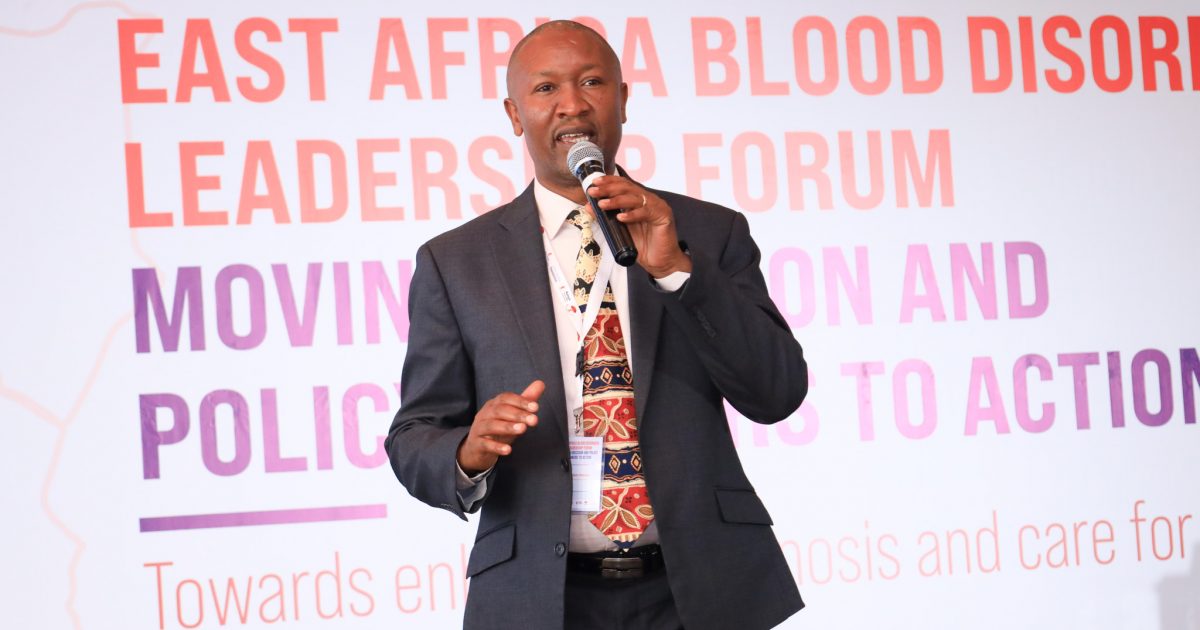Countries from the East African region have held the East Africa Blood Disorders Leadership Forum focused on discussing the future of Bleeding and Blood Disorders (BBDs) such as sickle cell, hemophilia and von Willebrand diseases amongst its citizens.
The forum aimed to bring together the associated leaders, patient organizations, government representatives and patients in an attempt to foster efforts, experiences and advocate for advanced care for those infected and affected by blood disorders in the regions.
Speaking at the event, Head of Division of Non-Communicable Diseases (NCD) in the Ministry of Health, Dr. Gladwell Gathecha stated, “We have laid out various strategies in our NCD strategic plan that runs between 2021 and 2025”.
Some of these strategies according to Dr. Gathecha include the development of guidelines that should be used by health care workers from Kisumu to Mombasa to ensure that the quality of services that are offered for hemophilia or sickle cell patients is the same and of high quality.
“Another strategy is creating a forum where we bring various stakeholders to talk about these two diseases called the Hematological Disease Technical Working Group, which is the main decision-making organ that helps the Ministry of Health to plan in matters of blood disorders,” she added.
Dr. Gathecha revealed that places for blood disorders have been made through the Social Health Insurance (SHA), where sickle cell has a package for diagnostics and patients can undergo some certain diagnostic tests.
She also disclosed that there is an Emergency Chronic and Critical Illness Fund, which takes care of people living with blood disorders.
“These are chronic diseases because they are inherited and they live with the patient for a very long time and sometimes, one may acquire them along their course of life even when born without,” she explained.
Also speaking at the forum, Chair of the Kenya Hemophilia Association, Dr. Kibet Shikuku said, “Patients do not belong to doctors. They belong to the government. So if the government steps in, then I think solutions will be reached much faster.”
He added that stakeholders should be talking about mechanisms to improve care for those affected in addition to mobilizing resources and convincing the government to take care of its patients.
According to Dr Shikuku, there is a deficit of about 75 percent of people in East Africa who are not able to access blood disorder treatment leaving room for intervention in raising awareness on the opportunities of treatment and health care services.
He emphasized on the need of coming together to borrow practices from one another on how best to treat and care for BBDs patients by sharing resources, research and labour.
Meanwhile, the government has been urged to participate in donating funds, which will be directed to locating infected citizens and aid treating and curing these blood diseases.
By Imbiakha Phanice and Patience Mabonga





